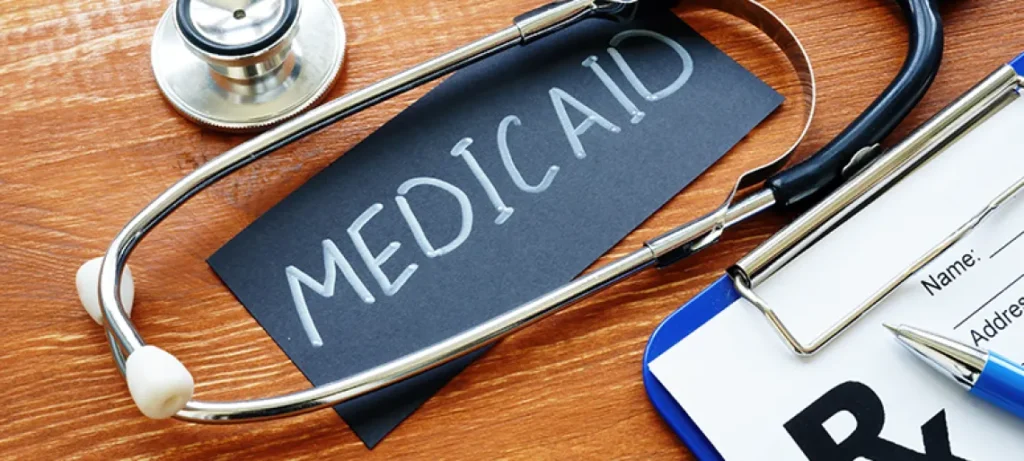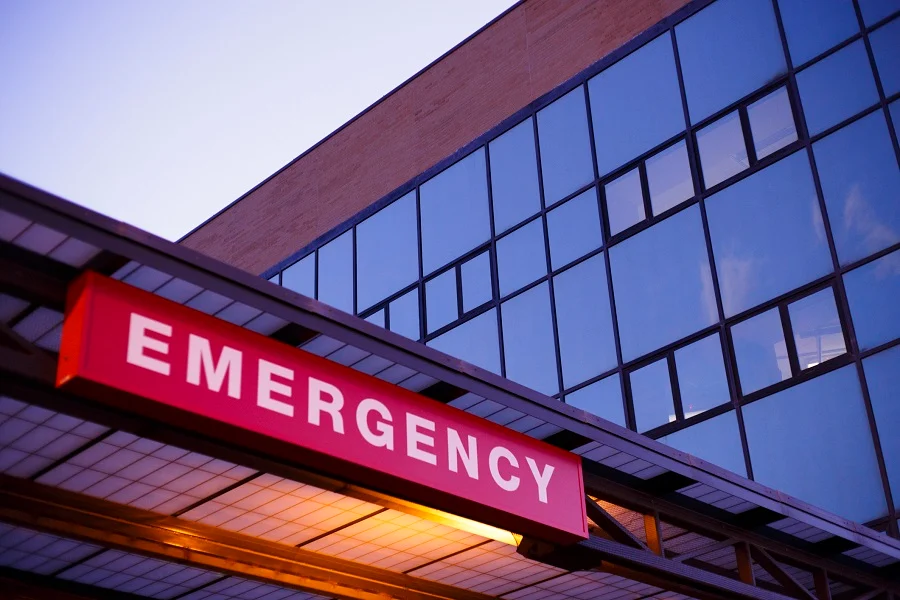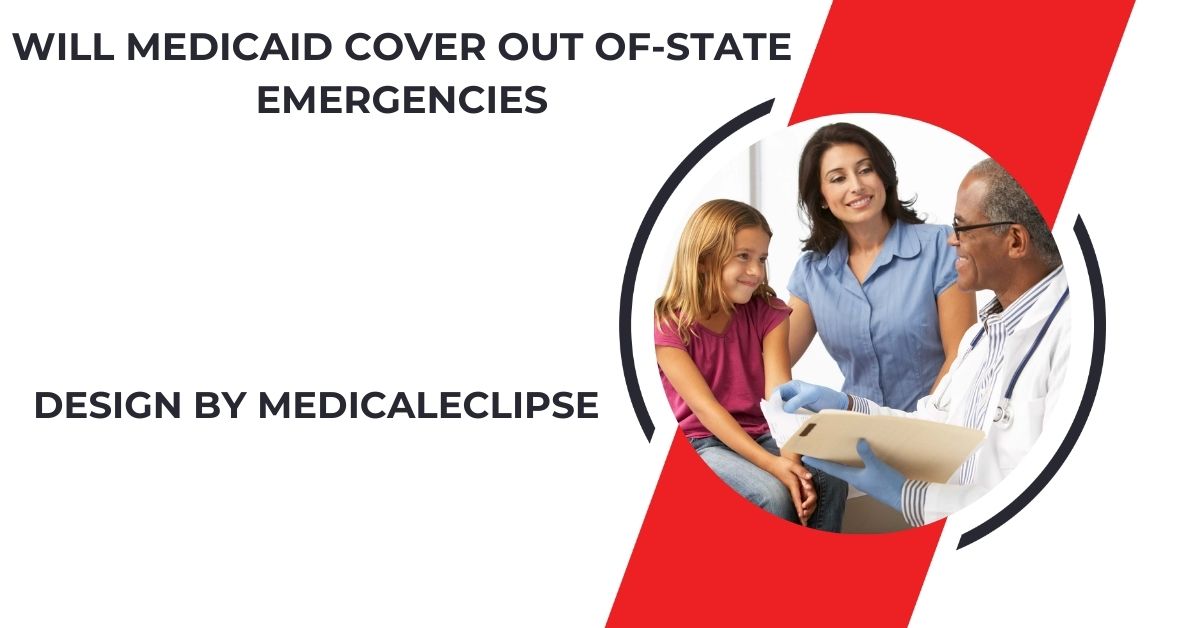Yes, Medicaid covers out-of-state emergencies if the situation is life-threatening and the provider agrees to work with your state’s Medicaid program.
In this article, we’ll address the important question, “Will Medicaid cover out-of-state emergencies?” Learn what to expect and how to ensure you’re covered if a medical emergency strikes while you’re away from home.
What is Medicaid?

Medicaid is a program that provides health coverage for eligible individuals, including low-income families, seniors, pregnant women, children, and people with disabilities. It is administered at the state level, but it is partially funded by the federal government. Each state has its own Medicaid program, meaning eligibility requirements and covered services can vary significantly from one state to another.
Does Medicaid Cover Out-of-State Care?
Generally, Medicaid coverage is limited to the state where you are enrolled. However, there are exceptions for specific situations, one of which is medical emergencies.
What is Considered an Emergency?
An emergency is typically defined as a situation where immediate medical attention is necessary to prevent serious health risks. For Medicaid to cover out-of-state emergency care, the medical issue must meet the following criteria:
- Immediate threat to life or health: If your condition could lead to severe complications, disability, or death without immediate attention, it’s classified as an emergency.
- Unpredictable event: The medical issue must be sudden and unexpected, not a pre-planned treatment or procedure.
- Emergency room visit: Treatment is often provided in a hospital emergency room (ER) or an equivalent facility equipped to handle life-threatening situations.
Will Medicaid Pay for My Out-of-State Emergency?
In most cases, Medicaid will cover an emergency when you are out of state, but there are a few key considerations:
Medical Necessity:
For Medicaid to cover the cost, the treatment you receive must be deemed medically necessary. This means the care was essential to address a life-threatening or severe health condition.
Emergency Nature of the Situation:
Medicaid will only cover care if it’s classified as an emergency. For example, a sudden heart attack or car accident that requires immediate attention would qualify. However, routine care or follow-up visits are generally not covered out of state.
Provider Participation:
Medicaid typically requires that the healthcare provider be enrolled in Medicaid, even if they are in a different state. The out-of-state provider must agree to bill your state’s Medicaid program. Not all providers are willing to do this, so it’s important to check with the hospital or healthcare facility.
Prior Authorization:
In non-emergency cases, some Medicaid plans require prior authorization before receiving treatment. Emergency care typically does not require prior approval, but it’s always a good idea to inform your Medicaid provider of your situation as soon as possible after receiving care.
Reciprocity Agreements:
Some states have reciprocity agreements, which means they have arrangements to cover care across state lines for Medicaid patients. This is particularly common in areas near state borders where residents often seek care in neighboring states.
How to Handle an Out-of-State Emergency on Medicaid:

If you find yourself in an emergency situation while out of state, here are some steps to ensure your care is covered by Medicaid:
Seek Immediate Care:
In a life-threatening emergency, your first priority should be getting medical attention. Do not delay care to check on Medicaid coverage. Once your immediate needs are taken care of, you can handle insurance matters.
Inform the Hospital or Provider:
When you arrive at the ER or medical facility, inform the staff that you are a Medicaid recipient. Provide them with your Medicaid card and any other relevant insurance information.
Contact Your Medicaid Provider:
As soon as you are able, contact your home state’s Medicaid office to inform them of the emergency. They can provide guidance on next steps, such as ensuring the hospital submits claims correctly.
Ask for Assistance with Billing:
If the healthcare provider is not familiar with your state’s Medicaid program, ask them to contact your Medicaid office for billing information. Hospitals are often willing to work with out-of-state Medicaid programs in emergency situations.
Follow Up:
After receiving care, follow up with your Medicaid office to ensure that the claim is processed correctly. Keep a record of all bills and communication with both the healthcare provider and Medicaid.
Limitations to Medicaid’s Out-of-State Coverage:
While Medicaid will generally cover emergency situations out of state, there are limitations:
- Non-Emergency Care: Routine or follow-up care is typically not covered out of state unless you have received prior authorization. For instance, if you need ongoing treatment after your emergency, you may need to return to your home state for Medicaid to cover the costs.
- Non-Participating Providers: If the hospital or doctor does not accept Medicaid or is not willing to bill your home state’s Medicaid program, you may be responsible for the full cost of your care.
- Out-of-Country Care: Medicaid does not cover medical care outside of the United States, even in emergencies.
FAQs
1.Does Medicaid cover out-of-state emergencies?
Yes, Medicaid covers life-threatening emergencies out of state if the provider agrees to work with your state’s Medicaid program.
2.What qualifies as an emergency for Medicaid?
An emergency is a sudden, life-threatening situation that requires immediate medical attention, such as a heart attack or severe injury.
3.Do I need prior authorization for out-of-state emergency care?
No, prior authorization is not required for emergencies, but it’s important to inform your Medicaid office after receiving care.
4.What happens if the provider doesn’t accept Medicaid?
If the provider is unwilling to bill your state’s Medicaid program, you may have to cover the cost of care.
5.Does Medicaid cover non-emergency care out of state?
No, non-emergency or routine care is generally not covered out of state unless you receive prior authorization.
Conclusion
Medicaid covers out-of-state emergencies if the care is medically necessary and the provider agrees to work with your state’s Medicaid program. Always inform your provider you’re on Medicaid and contact your state’s Medicaid office after treatment. Planning ahead can help you navigate emergency care while traveling between states.
Related Post
- Imaage Of A Group Heelping Somone Wwith Baad Mental Health – The Power of Support in Healing!
- Lacticaseibacillus Casei Cect9104 Health Benefits – A Probiotic Powerhouse for Adults!
- l Plantarum lp1 Adult Health Benefits – The Probiotic Powerhouse for Gut, Immunity, and Vitality!
- l Rhamnosus Hrvd113 Health Benefits For Men – A Complete Guide to Gut and Hormonal Wellness!
- Joby Pullappally Florida Department Of Health – A Complete Overview!

Leave a Reply